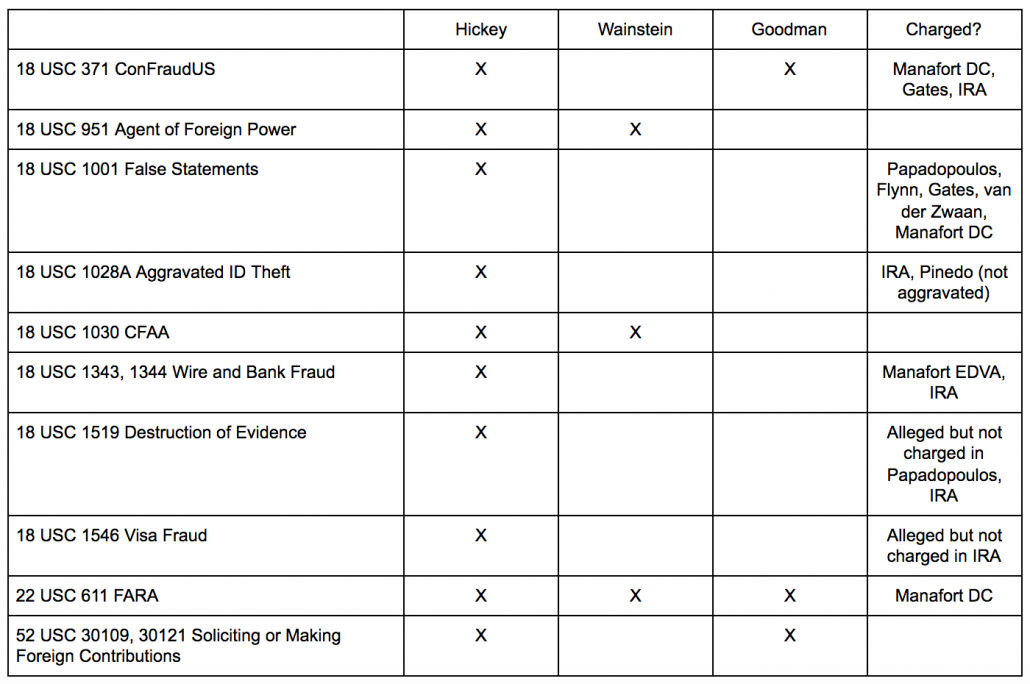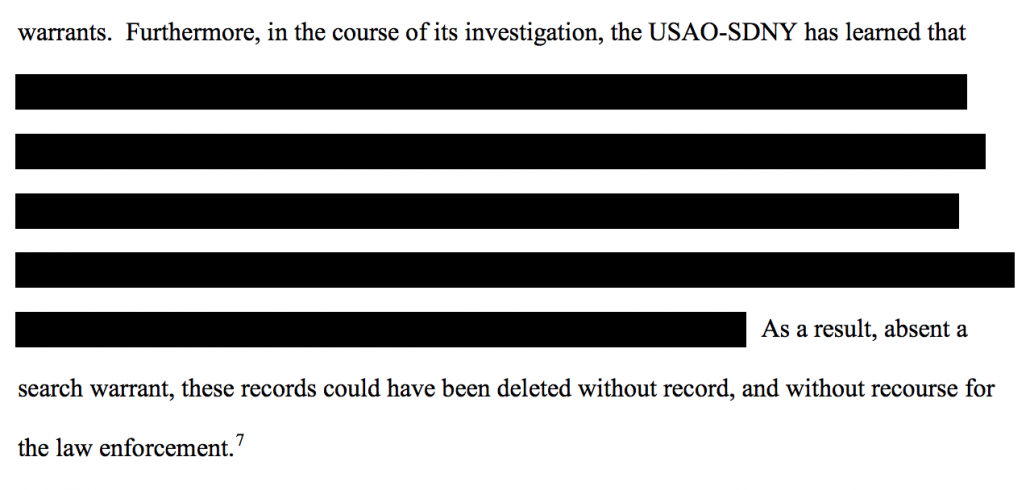The Crimes with which NSD Envisions Charging Those Attacking Elections
The Senate Judiciary Committee had a hearing on how to protect our elections today. Among others, Deputy Assistant Attorney General Adam Hickey from DOJ’s National Security Division testified. He gave a list of some of the crimes he thought might be used to charge people who tampered with elections.
Foreign influence operations, though not always illegal, can implicate several U.S. Federal criminal statutes, including (but not limited to) 18 U.S.C. § 371 (conspiracy to defraud the United States); 18 U.S.C. § 951 (acting in the United States as an agent of a foreign government without prior notification to the Attorney General); 18 U.S.C. § 1001 (false statements); 18 U.S.C. § 1028A (aggravated identity theft); 18 U.S.C. § 1030 (computer fraud and abuse); 18 U.S.C. §§ 1343, 1344 (wire fraud and bank fraud); 18 U.S.C. § 1519 (destruction of evidence); 18 U.S.C. § 1546 (visa fraud); 22 U.S.C. § 618 (Foreign Agents Registration Act); and 52 U.S.C. §§ 30109, 30121 (soliciting or making foreign contributions to influence Federal elections, or donations to influence State or local elections).
In their testimony, Ken Wainstein (someone with extensive experience of national security prosecutions, but less apparent focus on the available evidence in this investigation) and Ryan Goodman (who doesn’t have the prosecutorial experience of Wainstein, but who is familiar with the public facts about the investigation) also list what crimes they think will get charged.
I find a comparison of what each raised, along with what has already been charged, to be instructive. I believe that comparison looks like this:
I’m interested, in part, because Hickey, who likely has at least a sense of the Mueller investigation (if not personal involvement), sees the case somewhat differently than two differently expert lawyers. Two charges — agent of a foreign power (basically, being a foreign spy in the US not working under official cover) and CFAA (hacking) seem obvious to both National Security Division prosecutors, but have not yet been publicly charged. Illegal foreign contributions seems obvious to those paying close attention, but also has not been charged. We might expect to see all three charges before we’re done.
Neither Wainstein nor Goodman mentioned false statements, but of course that’s what we’ve seen charged most often so far.
Then there are the two crimes Hickey mentions that the others don’t, but that have not yet been charged (both have been alleged as overt acts in the Internet Research Agency indictment): Visa fraud (alleged against the trolls who came to the US to reconnoiter in 2014) and destruction of evidence (again, alleged against IRA employees destroying evidence after Facebook’s role was discovered). Mueller also described George Papadopoulos destroying evidencec when he deleted his Facebook account, but like the Russian trolls, he didn’t get charged for it. Visa fraud, in particular, is something that multiple figures might be accused of — Alexander Torshin and others reaching out via NRA, Natalia Veselnitskaya, and even Brits who worked illegally during the election for Cambridge Analytica.
I confess I’m most interested in Hickey’s mention of destruction of evidence, though. That’s true, in part, because SDNY seems to think Michael Cohen might destroy evidence.
Hope Hicks, too, reportedly thought about hiding evidence from authorities. Then there’s the report that Mueller is checking encrypted messaging apps as people turn in phones when they arrive for interviews.
Huckey seems to think some of the people being investigated — beyond Papadopoulos and IRA troll Viktorovna Kaverzina — may have been destroying evidence.
I wonder if he has reason to suspect that.



